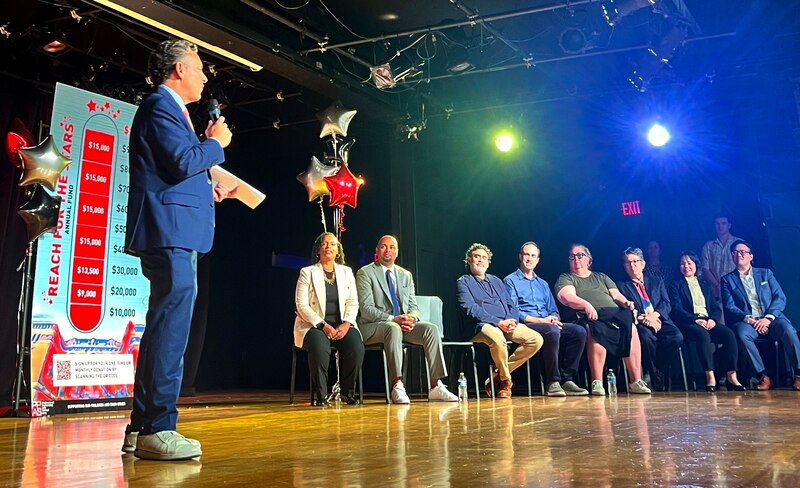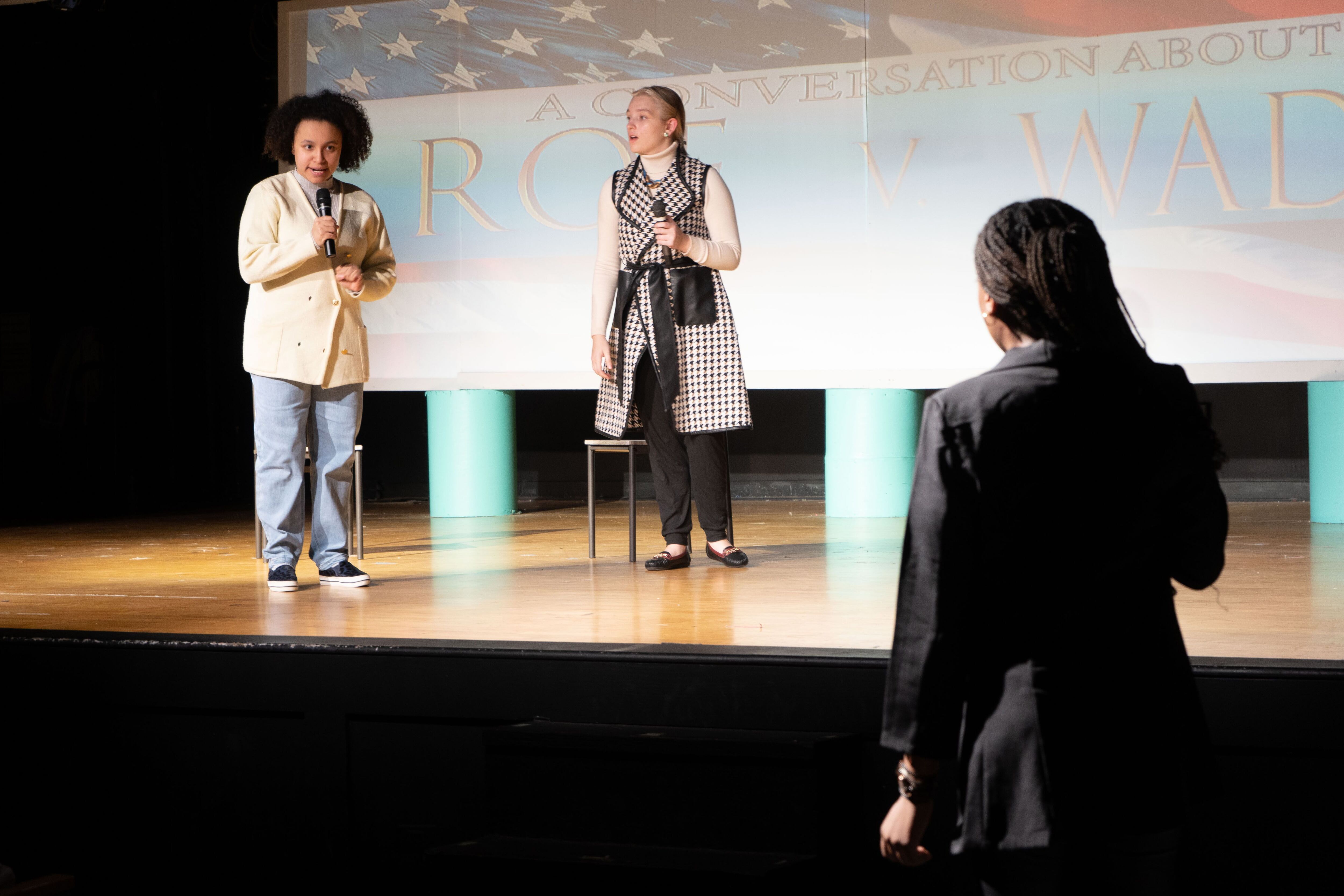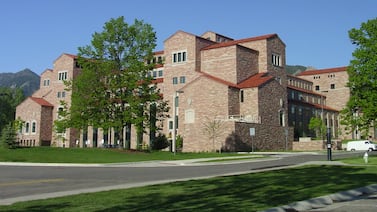Manhattan’s Professional Performing Arts School found itself in the middle of a drama in the spring when its longstanding theater program announced it would have to pull its teaching artists and close the curtains earlier because of a funding shortfall.
Students at the Hell’s Kitchen 6-12 school sprung into action, launching a GoFundMe campaign that raised $60,000 and included donations from famous alums, including “The Bear” actor Jeremy Allen White. Another A-list alum, Alicia Keys, donated $60,000 with her management company, Roc Nation.
And this year, the school got the full amount it needed for the theater program.
It seemed like a happy ending for Waterwell, which had been embedded at the school for more than a decade.
But the theater company, co-founded by “Succession’s” Arian Moayed, did not return this September.
Instead the school tapped Rosie’s Theater Kids to take over the school’s high school drama program and middle school program. Rosie’s Theater Kids has for years been running the school’s musical theater program for high school students.
And in a twist, the hero who rescued the theater program at the school, commonly known as PPAS, wasn’t one of its illustrious alumni, or even the Education Department. It was a state assembly member.
Manhattan Rep. Tony Simone presented a check to the school at a Wednesday PTA meeting for $632,000, from a pot of discretionary funds he worked with Assembly Speaker Carl Heastie to secure.
“Arts education is big for me,” said Simone, who met with staff and students from the school after the drama unfolded last spring. “Sadly, that’s where the government tends to cut first.”

Shawn Dell, the head of the school’s PTA, said the members of the school leadership team — made up of students, parents, teachers, administrators, and social workers — “unanimously agreed that a change was needed.”
“As with any major change, there are a few wrinkles that need to be ironed out, but overall the response from students and families has been positive,” she wrote in an email. “The excitement within our community is palpable.”
Waterwell Board Secretary Maria Somma said the organization had several meetings with Simone earlier this year to discuss the importance of arts education, and while the organization was “greatly disappointed” they were not invited back to the school after 14 years, they applauded Simone for helping the arts thrive at PPAS.
A small arts school in the spotlight
PPAS may not be as well known as some of New York City’s other prestigious arts schools, like LaGuardia High School of Music & Art and Performing Arts, which has inspired the “Fame” movies and television series, or the Frank Sinatra School of the Arts, which was founded by the late Tony Bennett and his wife. Some of it is because of its size. LaGuardia has about 2,400 high school students. Frank Sinatra has about 840 kids in ninth through 12th grade. PPAS has about 530 students in its combined middle and high school.
PPAS uses a conservatory-style model, which is fairly unusual in a public school. Waterwell’s professionals, for instance, had led acting classes two hours every day for high school students, while for middle school, they led musical theater classes 1½ hours each day. (The school also partners with the Ailey School for dance and the National Chorale for voice.)
Waterwell was much beloved by the school community. The program’s now-ex head told parents in March that it would end earlier than usual because of a 20% budget shortfall. Education Department officials, however, disputed that and said the program’s work order was above what the school could afford, and that they had warned the program about it months before.
Despite Waterwell’s popularity, some parents already had rave reviews for the changes.
Amanda Rinzel, the parent of an eighth grader, said the middle schoolers have for the first time choices for electives (Shakespeare, improv, writing your own film/stage performance piece, or dance styles) and more performance opportunities.
“We are very happy with the change,” she said.
“Waterwell will continue to make professional productions, using the same core values and tools we have always taught our students — to be artist-citizens who tell stories that are relevant, illuminating, and inspiring,” Somma said in a statement. (The organization’s upcoming production of THE FORD / HILL PROJECT will turn the senate hearing transcripts of Anita Hill and Christine Blasey Ford into a performance this year at the Public Theater.)
Waterwell wished the school “nothing but love and support,” she added.
Amy Zimmer is the bureau chief for Chalkbeat New York. Contact Amy at azimmer@chalkbeat.org.






